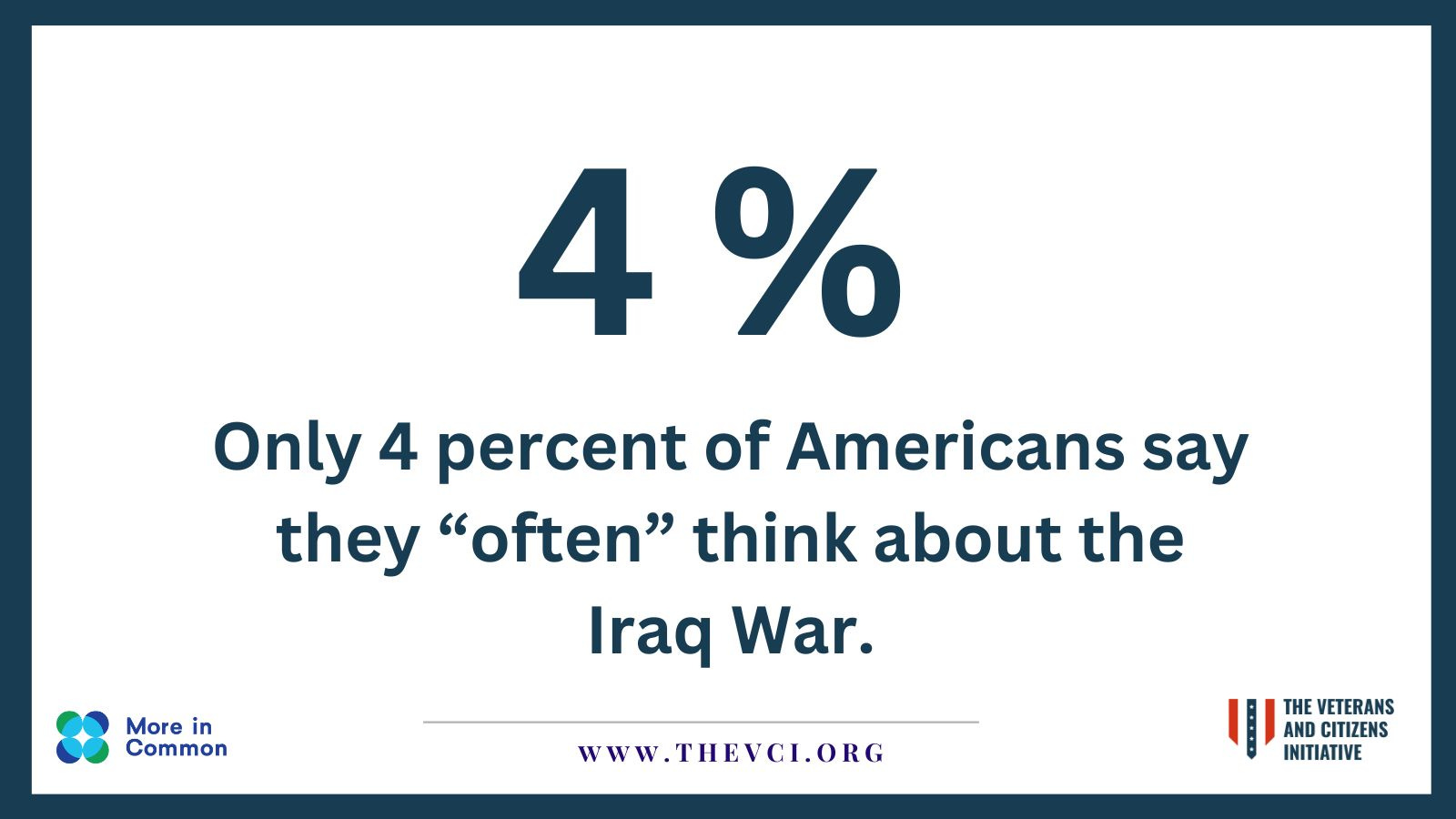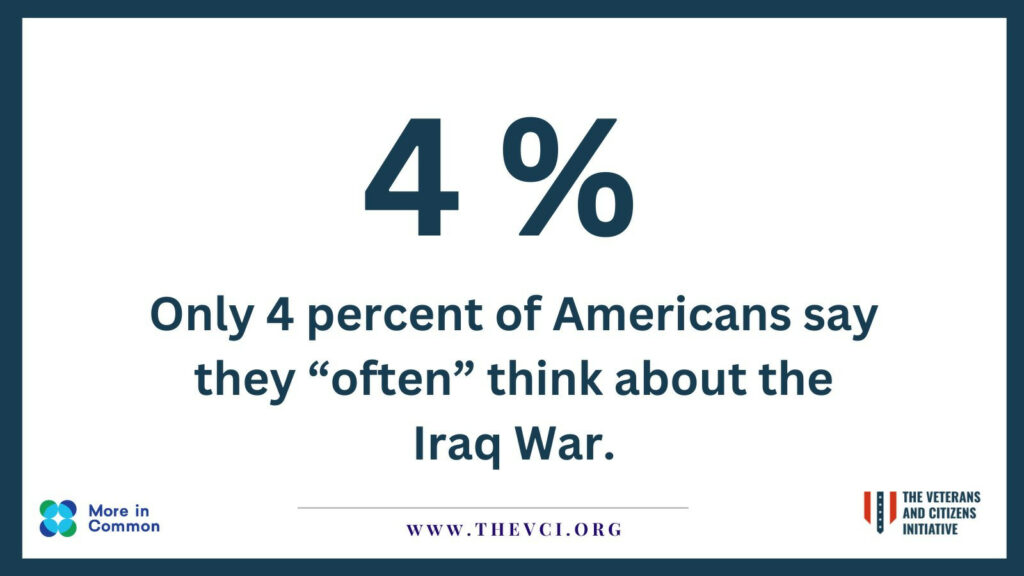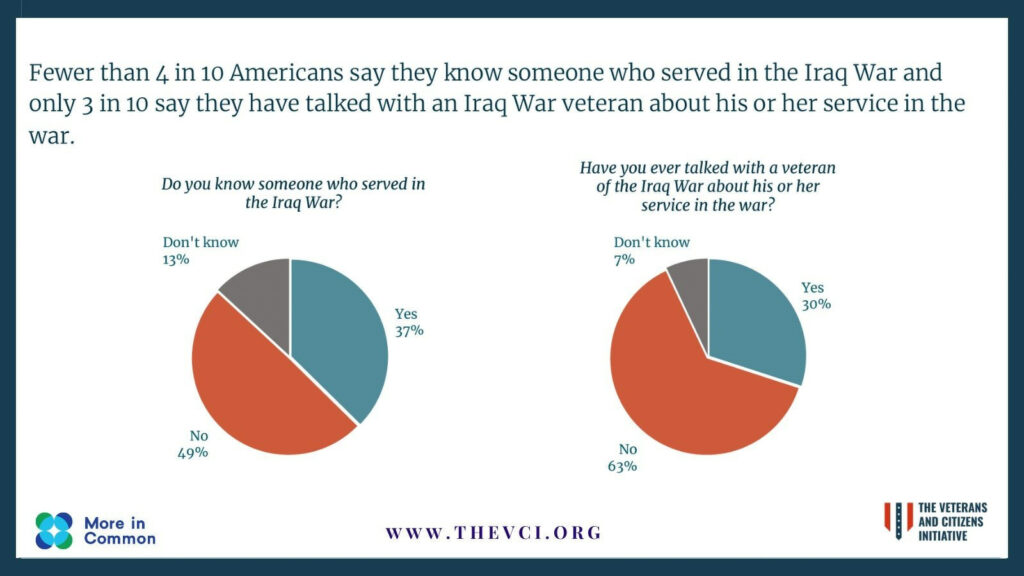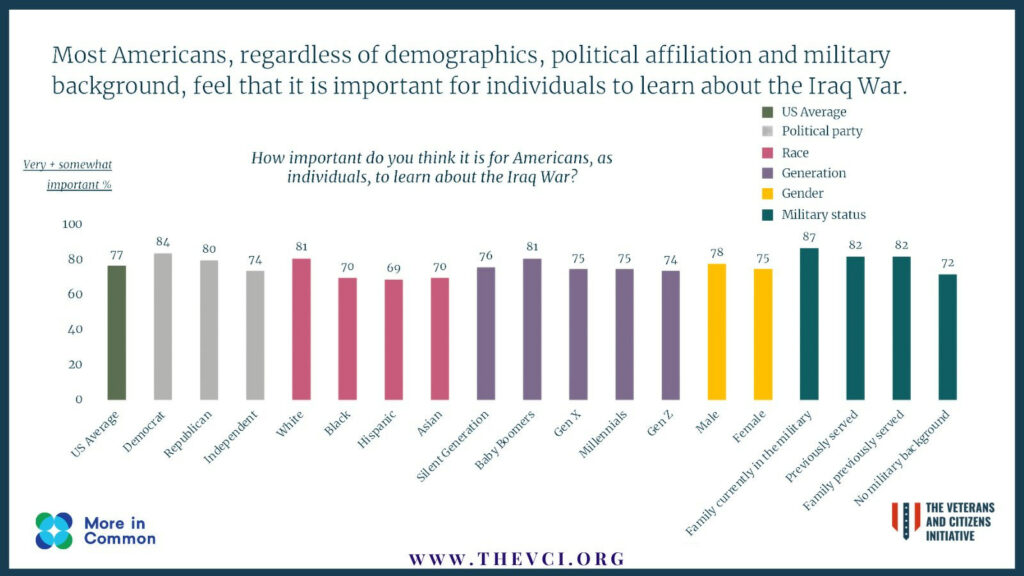March 20, 2023
How Should We Learn About the Iraq War?
More in Common US

Summary: As we mark the 20th anniversary of the invasion of Iraq, we asked Americans their attitudes towards and memories of the Iraq War (2003-2011). The survey findings suggest that, while the Iraq War appears remote and invisible for most Americans, there is broad support across American society to learn more about the war.
Pulitzer-Prize winning author Viet Thanh Nguyen wrote, “All wars are fought twice, the first time on the battlefield, the second time in memory.” Today, as we observe the 20th anniversary of Operation Iraqi Freedom, we are in the second act of the Iraq War (2003-2011), where the battlefield is our collective memory. In this context, victory is less a matter of which side will triumph and more a question of whether we remember the war in a manner that both honors the sacrifices made by thousands and makes our nation stronger, more united, and more capable of managing future threats and conflicts.
In pursuit of such a victory, new research from More in Common finds both obstacles and opportunities.
Obstacles
First, the obstacles. The Iraq War is largely out-of-mind and forgotten by most Americans. Only four percent say they “often” think about the war and only seven percent “strongly agree” that the war changed their life.

When they do think about the war, the picture is hazy, 64 percent of Americans, for example, say they are not familiar with the 2007 Surge. In so many ways, the data indicates most Americans feel the war neither was, nor is, a significant event in their lives.
Further, there is relatively little dialogue happening between veterans of the Iraq War and other Americans. 63 percent of Americans say they have never talked with an Iraq War veteran about their experience with the war and about half the country does not even know someone who served in the war.

Finally, an additional impediment to constructive engagement with the history of our Iraq War is the highly polarized feelings of blame Americans hold for elements of the war that went poorly for America. Democrats overwhelmingly say President George W. Bush and Secretary of Defense Donald Rumsfeld deserve most of the blame whereas Republicans assign blame primarily to President Barack Obama.
Opportunities
Although these are daunting challenges to overcome, our research also finds clear opportunities for Americans to come together to learn about the Iraq War. Most importantly, an overwhelming majority – 77 percent – say that it is important, as individuals, to learn about the Iraq War. And similarly, from our prior research we know that 81 percent of Americans feel it is important for nonveterans to talk with veterans.

Our task, then, is to translate this interest in learning and talking with veterans into concrete action and to create learning efforts that are resilient against polarization.
The full report, key statistics, and a timeline of key events from the war can be found here.
Anchored in More in Common, this research is part of The Veterans and Citizens Initiative, a nonpartisan group of veterans, military families, and support organizations who are committed to working with our fellow Americans to bridge divides, strengthen our country, and promote the shared obligations of citizenship. Learn more at: www.TheVCI.org.
Methodology
More in Common partnered with international polling company YouGov to conduct online survey interviews with N=2,000 adult US citizens from February 7 to February 14, 2023. In the survey, respondents were asked about opinions and memories from Operation Iraqi Freedom and Operation New Dawn (2003 –2011). These two operations are referred to as the “Iraq War” in this report.
Coverage of MIC’s Report – Operation Iraqi Freedom at 20: Americans and the Iraq War
- The National Desk, 20 YEARS LATER: Most Americans see Iraq War as mixed bag at best.
- The Hill, Will Iraq Become the Next Forgotten War? Commentary, Dan Vallone.
- Stars and Stripes, On 20th Anniversary US Veterans and Iraqis Grapple With War’s Legacy.
- NPR, Iraq War Vets Reflect On a War Americans Have Largely Tried to Put Behind Them.